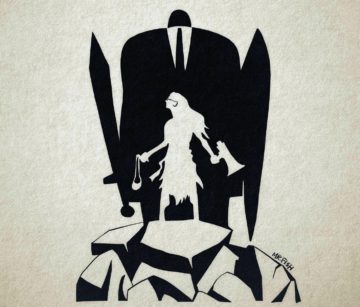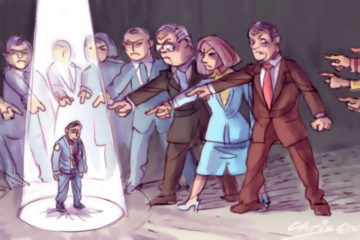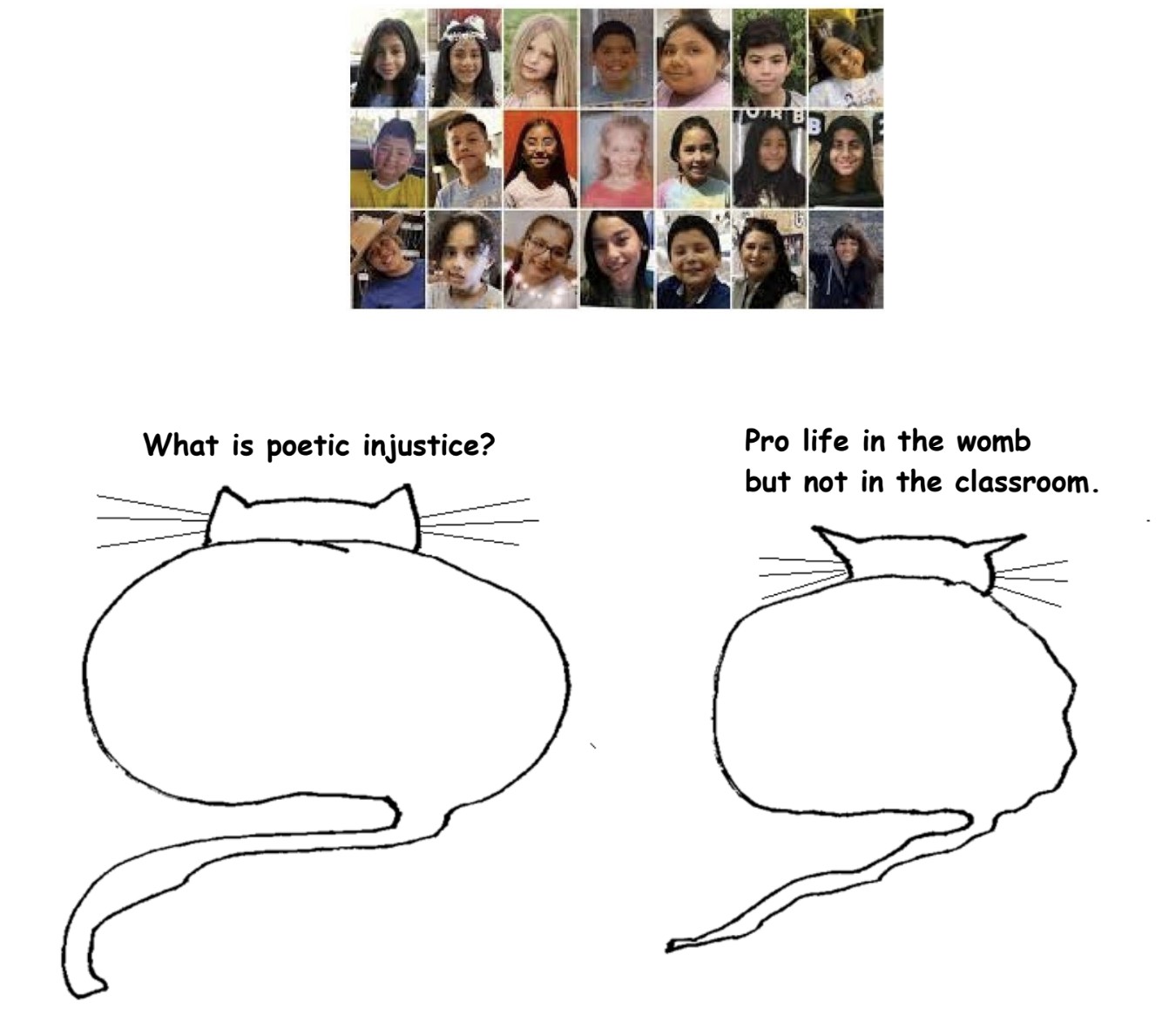by Emrys Westacott

Numerous reports have been compiled and articles written about the way that the covid pandemic has affected, or will affect, work: the way people do it, and their attitude towards it. But although certain general trends can be identified–e.g. the percentage of meetings held online rather than face-to-face has, naturally enough increased–people’s attitudes towards work and the workplace haven’t been affected in a uniform way.
Many of those who have been able to work more from home relish the advantages of doing so. They avoid time-consuming and often stressful commutes; they are able to integrate the business of ordinary living–going to the dentist, picking up a prescription, working when the kids are off school, etc.–with getting their work done. Hours can be more flexible, and the same goes for the dress code.
For others, though, working from home all the time has many drawbacks. Commuting may have a bad reputation, but for a surprising number of people it can be positively enjoyable. A Canadian study found that where the commute take less than 30 minutes more than 50% of respondents said that they enjoy their commute. And among people who cycle to work, almost a fifth said that the commute was the best part of their day.[1]
The flexibility and freedom that working from home allows is undeniably a plus. But for some, the stricter routine provided by a requirement to show up at the workplace by a certain time brings order to the day and to the use of one’s time.
Most of all, though, physical workplaces serve an important social function. Just as it is good for our physical and mental health to to get outside every day and to be in regular touch with the natural world, so it is beneficial for most of us to meet and interact with other people regularly. The relationships in question may not be the most important ones in our lives: those with our fellow workers often are not. The conversations we have don’t have to be especially intimate or stimulating. But they can still be meaningful: occasions for sorting out a problem, cracking a joke, complaining about something or someone, giving or taking advice, offering or receiving a compliment. Read more »
 Jokes, sarcasm and humor require understanding the subtleties of language and human behavior. When a comedian says something sarcastic or controversial, usually the audience can discern the tone and know it’s more of an exaggeration, something that’s learned from years of human interaction.
Jokes, sarcasm and humor require understanding the subtleties of language and human behavior. When a comedian says something sarcastic or controversial, usually the audience can discern the tone and know it’s more of an exaggeration, something that’s learned from years of human interaction.
 In all of physical law, there’s arguably no principle more sacrosanct than the second law of thermodynamics — the notion that entropy, a measure of disorder, will always stay the same or increase. “If someone points out to you that your pet theory of the universe is in disagreement with Maxwell’s equations — then so much the worse for Maxwell’s equations,” wrote the British astrophysicist Arthur Eddington in his 1928 book The Nature of the Physical World. “If it is found to be contradicted by observation — well, these experimentalists do bungle things sometimes. But if your theory is found to be against the second law of thermodynamics I can give you no hope; there is nothing for it but to collapse in deepest humiliation.” No violation of this law has ever been observed, nor is any expected.
In all of physical law, there’s arguably no principle more sacrosanct than the second law of thermodynamics — the notion that entropy, a measure of disorder, will always stay the same or increase. “If someone points out to you that your pet theory of the universe is in disagreement with Maxwell’s equations — then so much the worse for Maxwell’s equations,” wrote the British astrophysicist Arthur Eddington in his 1928 book The Nature of the Physical World. “If it is found to be contradicted by observation — well, these experimentalists do bungle things sometimes. But if your theory is found to be against the second law of thermodynamics I can give you no hope; there is nothing for it but to collapse in deepest humiliation.” No violation of this law has ever been observed, nor is any expected. Seattle City Councilmember Kshama Sawant and the
Seattle City Councilmember Kshama Sawant and the  THE CARTHAGINIANS WERE
THE CARTHAGINIANS WERE On 4 March, Christopher Jackson tweeted that he was leaving the University of Manchester, UK, to work at Jacobs, a scientific-consulting firm with headquarters in Dallas, Texas. Jackson, a prominent geoscientist, is part of a growing wave of researchers using the #leavingacademia hashtag when announcing their resignations from higher education. Like many, his discontent festered in part owing to increasing teaching demands and pressure to win grants amid lip-service-level support during the COVID-19 pandemic.
On 4 March, Christopher Jackson tweeted that he was leaving the University of Manchester, UK, to work at Jacobs, a scientific-consulting firm with headquarters in Dallas, Texas. Jackson, a prominent geoscientist, is part of a growing wave of researchers using the #leavingacademia hashtag when announcing their resignations from higher education. Like many, his discontent festered in part owing to increasing teaching demands and pressure to win grants amid lip-service-level support during the COVID-19 pandemic. Doocot or dookit is the Scottish term for a dovecote or columbarium; a structure built to nest and breed domesticated pigeons. Some doo men keep their champion pigeons in doocots cut into attic spaces or adapted garden sheds, but on the schemes I lived on, we had neither attics nor gardens, and so the men who wanted to keep pigeons built their lofts out on any piece of unclaimed ground. Aesthetically they have little in common with the traditional stone dovecotes you might find on the grounds of a manor house. The doocots I remember were monolithic towers, twenty feet tall, and they were built from salvaged materials: old Formica tabletops, screwed to corrugated iron and offcuts of MDF. It gave most doocots a rickety charm, which the men tried to disguise by painting the whole thing a uniform colour.
Doocot or dookit is the Scottish term for a dovecote or columbarium; a structure built to nest and breed domesticated pigeons. Some doo men keep their champion pigeons in doocots cut into attic spaces or adapted garden sheds, but on the schemes I lived on, we had neither attics nor gardens, and so the men who wanted to keep pigeons built their lofts out on any piece of unclaimed ground. Aesthetically they have little in common with the traditional stone dovecotes you might find on the grounds of a manor house. The doocots I remember were monolithic towers, twenty feet tall, and they were built from salvaged materials: old Formica tabletops, screwed to corrugated iron and offcuts of MDF. It gave most doocots a rickety charm, which the men tried to disguise by painting the whole thing a uniform colour. In an afterword to Far from the Light of Heaven, Thompson asks himself if he’s writing space opera — “a conversation my editor, my agent, my cat and I had many times” — and if so, what would the tropes of that subgenre bring to his work. As a practicing psychiatrist who somehow manages another full-time career as a novelist, Thompson has shared
In an afterword to Far from the Light of Heaven, Thompson asks himself if he’s writing space opera — “a conversation my editor, my agent, my cat and I had many times” — and if so, what would the tropes of that subgenre bring to his work. As a practicing psychiatrist who somehow manages another full-time career as a novelist, Thompson has shared  A UK politician recently suggested that people could combat the cost-of-living crisis by working more hours or getting a better job. This is one more in a long line of instances where societal problems have been framed as being solvable by individual actions. One of the earliest I can remember was when Tory minister Norman Tebbit, following a claim that the riots of 1981 were caused by high unemployment, cited his own father as a salutary example of self-responsibility. ‘I grew up in the 30s with an unemployed father,’ he said. ‘He didn’t riot. He got on his bike and looked for work, and he kept looking till he found it.’ More recently British TV personality Kirsty Alsop recommended that young people start saving earlier and cut out the fancy coffees, gym membership and Netflix subscriptions as a way of combatting unaffordable house prices.
A UK politician recently suggested that people could combat the cost-of-living crisis by working more hours or getting a better job. This is one more in a long line of instances where societal problems have been framed as being solvable by individual actions. One of the earliest I can remember was when Tory minister Norman Tebbit, following a claim that the riots of 1981 were caused by high unemployment, cited his own father as a salutary example of self-responsibility. ‘I grew up in the 30s with an unemployed father,’ he said. ‘He didn’t riot. He got on his bike and looked for work, and he kept looking till he found it.’ More recently British TV personality Kirsty Alsop recommended that young people start saving earlier and cut out the fancy coffees, gym membership and Netflix subscriptions as a way of combatting unaffordable house prices. My mom always told me if I didn’t separate my lights from my darks, I would ding my white laundry. I always thought this was nonsense. And, in fact, in the fancy washing machine in the apartment I shared with my husband, this was nonsense. Oh, I was absolutely reckless! I would toss bright red shirts in with white sheets and black jeans in with cream-colored t’s. And it was always alright in the end. The whites stayed white, and the colors did not fade. I was confident in my millennial assessment that separating the lights from the darks was simply Gen X anxiety, old wisdom, no longer applicable, démodé even.
My mom always told me if I didn’t separate my lights from my darks, I would ding my white laundry. I always thought this was nonsense. And, in fact, in the fancy washing machine in the apartment I shared with my husband, this was nonsense. Oh, I was absolutely reckless! I would toss bright red shirts in with white sheets and black jeans in with cream-colored t’s. And it was always alright in the end. The whites stayed white, and the colors did not fade. I was confident in my millennial assessment that separating the lights from the darks was simply Gen X anxiety, old wisdom, no longer applicable, démodé even. 

 Fifty years ago this July, newspaper headlines shocked the conscience of the nation with a disturbing story of racial bias and medical mistreatment in one of America’s most honored institutions. The alarming Associated Press story first appeared on July 25, 1972 in the Washington Star. The front page headline, “Syphilis Patients Died Untreated,” caught readers attention. They’d go on to read that the goal of a strange, non-therapeutic experiment conducted by the United States Public Health Service (USPHS) was not to treat the sick or save lives, but “determine from autopsies what the disease does to the human body.”
Fifty years ago this July, newspaper headlines shocked the conscience of the nation with a disturbing story of racial bias and medical mistreatment in one of America’s most honored institutions. The alarming Associated Press story first appeared on July 25, 1972 in the Washington Star. The front page headline, “Syphilis Patients Died Untreated,” caught readers attention. They’d go on to read that the goal of a strange, non-therapeutic experiment conducted by the United States Public Health Service (USPHS) was not to treat the sick or save lives, but “determine from autopsies what the disease does to the human body.” Kandis Williams. Triadic Ensemble: stacked erasures, 2021.
Kandis Williams. Triadic Ensemble: stacked erasures, 2021.

